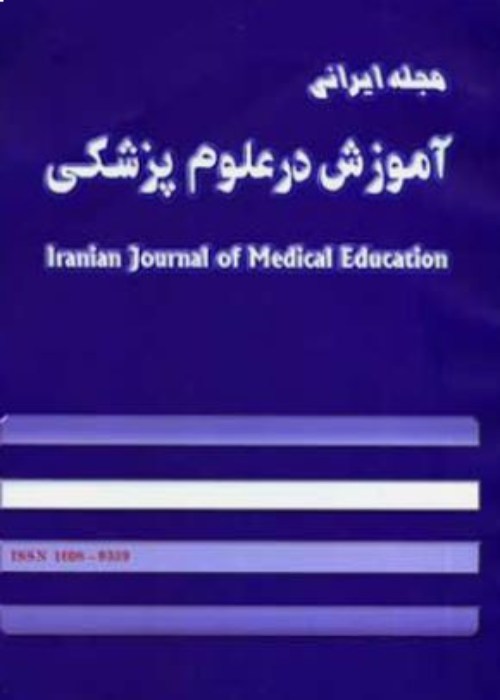Comparison of Academic Achievement and Educational Environment of Basic Sciences Phase of MD Program in Tehran University of Medical Sciences, before and after Curricular Reform
Author(s):
Abstract:
Introduction
Curriculum reform of MD program in Tehran University of Medical Sciences involves fundamental changes in many aspects of the program. Three years after implementation of the new curriculum, evaluation of program outcomes is necessary. The aim of this study was to compare academic achievement and educational environment of basic sciences phase of the previous curriculum with those of the revised curriculum. Methods
In this retrospective cohort study, the average score of basic sciences courses for all medical students accepted to Tehran University of Medical Sciences in 2011 and previous three years (2008-10) was extracted. The results of the 44th, 46th, 48th and 50th basic sciences comprehensive exams, including university rank and the standard score were analyzed. DREEM questionnaire was used to assess the educational environment which was completed by students admitted in 2010 and 2011 at the end of basic sciences phase. The data were analyzed by means of ANOVA, Chi-Square and t-test. Results
The total number of medical students from 2008 to 2011 was 1032, of whom 589 students (57%) were female. The difference between the basic sciences average score, number of probationary and failed semesters over the years was not statistically significant. Based on the results of comprehensive exams, the university ranked third in 2008 and first in three subsequent years. University’s standard scores in all comprehensive exams were 0.61, 0.96, 0.85 and 0.94 respectively. The DREEM questionnaire scores were 91.5±0.46 and 93.5±0.41 (out of 200) respectively before and after the reform. This difference and differences between scores of questionnaire’s five areas were significant for the two groups. Conclusion
Although slight improvements could be seen in most of the assessed outcomes after the reform, they are not statistically significant. This could be attributed to near-perfect performance of the university in previous years or to the short interval between the intervention and outcome evaluation and therefore, concerns about academic failure following the curriculum reform do not seem to be valid. Regular monitoring of the outcomes is necessary for assessing long-term effectiveness of the curriculum reform.Keywords:
Language:
Persian
Published:
Iranian Journal of Medical Education, Volume:15 Issue: 3, 2015
Pages:
366 to 376
magiran.com/p1467943
دانلود و مطالعه متن این مقاله با یکی از روشهای زیر امکان پذیر است:
اشتراک شخصی
با عضویت و پرداخت آنلاین حق اشتراک یکساله به مبلغ 1,390,000ريال میتوانید 70 عنوان مطلب دانلود کنید!
اشتراک سازمانی
به کتابخانه دانشگاه یا محل کار خود پیشنهاد کنید تا اشتراک سازمانی این پایگاه را برای دسترسی نامحدود همه کاربران به متن مطالب تهیه نمایند!
توجه!
- حق عضویت دریافتی صرف حمایت از نشریات عضو و نگهداری، تکمیل و توسعه مگیران میشود.
- پرداخت حق اشتراک و دانلود مقالات اجازه بازنشر آن در سایر رسانههای چاپی و دیجیتال را به کاربر نمیدهد.
In order to view content subscription is required
Personal subscription
Subscribe magiran.com for 70 € euros via PayPal and download 70 articles during a year.
Organization subscription
Please contact us to subscribe your university or library for unlimited access!


